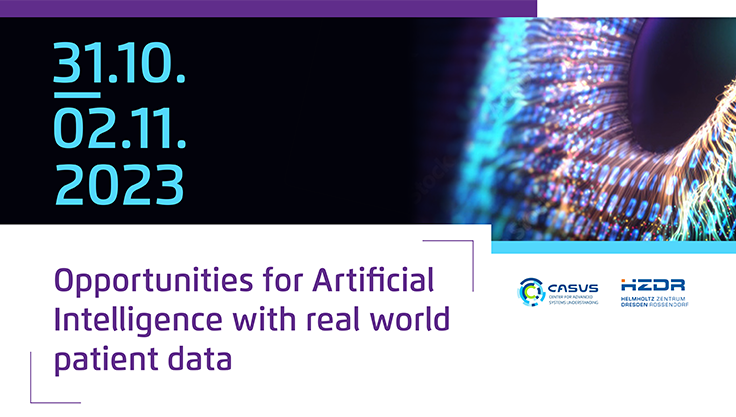- Indico style
- Indico style - inline minutes
- Indico style - numbered
- Indico style - numbered + minutes
- Indico Weeks View
Opportunities for Artificial Intelligence with real world patient data
→
Europe/Berlin
Helmholtz Information & Data Science Academy (HIDA)
Helmholtz Information & Data Science Academy (HIDA)
Friedrichstraße 171
10117 Berlin
Germany
Description

Machine learning and artificial intelligence offer the possibility to find new ways to better diagnose and treat cancer. One of the most promising paths towards this goal is using real world patient data.
EHR records, observational data, images or genomic data are increasingly made available in large scale data repositories.These data repositories usually aim for federated data access and analysis capabilities.
In this workshop we plan to address three major questions that need to be answered to lift the potential that lies in real world patient data with AI:
1. Where can AI surpass traditional data analytics and even human capabilities?
2. How can we provide the most comprehensive and complete view on real world patient data?
3. What software infrastructure is needed to enable federated data access and analysis?
Our three day lunch to lunch workshop aims to bring together data and computer scientists, clinicians, biostatisticians, software and hardware infrastructure providers, guideline experts, stakeholders from science and industry and patient representatives to discuss and answer these questions.
The goal of the workshop is to draw connections on the European level to exchange information on the status of AI for understanding real world patient data.
We plan to assemble information on existing European and national initiatives and solutions. With this information we want to identify and foster synergies and formulate a strategy supporting AI with real world patient data.
The outcome of this workshop will be a document detailing the opportunities of AI with real world patient data and what is needed to realize them.
Registration
Registration Form
